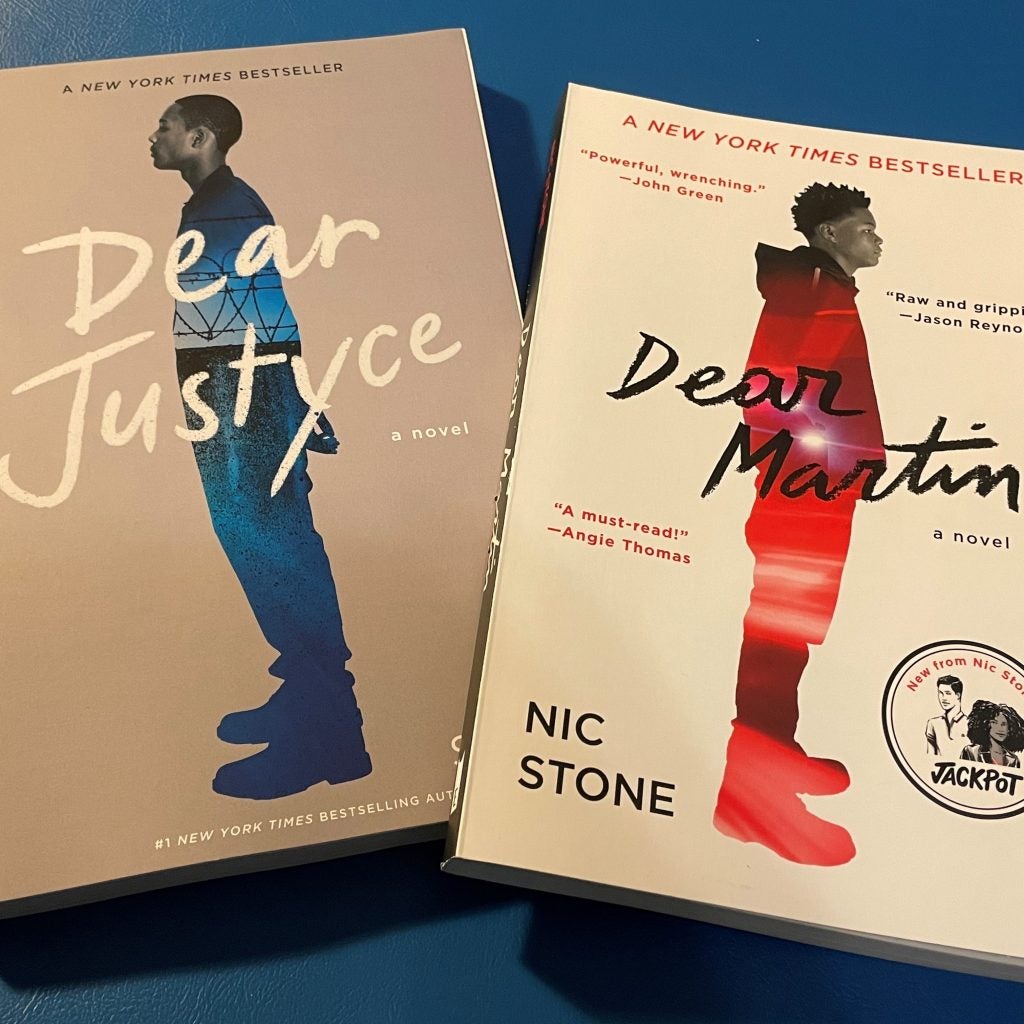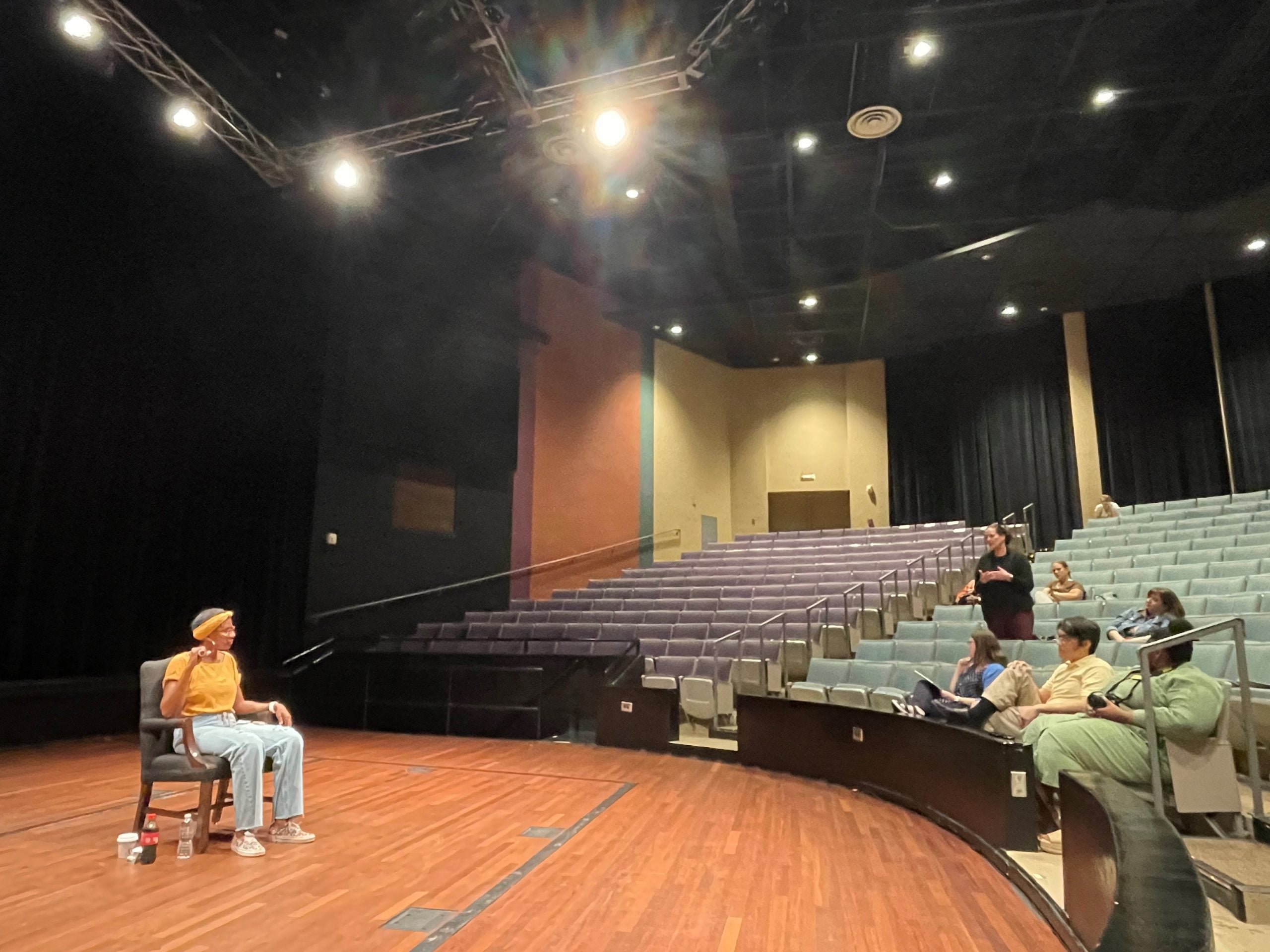New York Times best-selling young adult author Nic Stone had plenty to say about writing inspirations, banned books and the power of literature to foster empathy at her talk at Augusta University on Tuesday afternoon. Mostly, however, she spoke about being human.
“We’re physically messy, from a very young age,” said Stone. “We are emotionally messy; we are mentally, cognitively messy. And in order to fully be human, that mess is something we have to embrace.”
The Atlanta-based novelist spoke as part of Augusta University’s 2022 Writing Project Author Series, which is an initiative coordinated via a partnership between the College of Education’s Writing Project, the AU Office of Diversity and Inclusion and The Book Tavern. The school invites bestselling writers to give presentations and question and answer sessions on various topics, as free events open to the public.
The engagement featuring Stone was the first such event held on campus, as up to this point the school had to conduct the conversations virtually amid COVID restrictions. Her talk “On Being Human” was the first half of a two-part presentation, starting at 3 p.m. at the Maxwell Theatre, followed by “On Teaching Dangerous Books” at 4 p.m.
MORE: Georgia governor signs seven bills covering education
Stone started the first lecture by talking about how she was inspired to write “Dear Martin,” her 2017 novel about an African American high schooler who, after a traumatic encounter being racially profiled by police, writes a journal of letters to Martin Luther King Jr.
The seed of this novel, Stone recalled, was planted shortly after the birth of her first child in 2012, when she heard the stories of Jordan Davis, an African American teenage boy who was shot and killed in Jacksonville, Fla. by David Dunn amid an argument about loud music played by Davis; and Trayvon Martin, who was fatally shot in Sanford, Fla. by George Zimmerman while walking to his father’s fiancée’s house from a convenience store. Both incidents occurred in 2012.
“I just very painfully pushed this person out into a world that is likely to be unkind to him at multiple points along his journey, not only to adulthood, but through adulthood.” Stone said. “And it was in coming to that realization that I saw in myself a need to start validating other peoples’ humanity.”
Stone went on to refer to Michael Brown, 18, who was fatally shot in 2014 by police officer Darren Wilson in Ferguson, Mo., and protests against racism and police brutality ensued in the St. Louis area and nationally. The writer noted the prevalence, then, of news media pundits invoking King in opposing the protests. The deaths of Davis, Martin and Brown alongside some news media pundits invoking King’s name in opposition to the resulting protests solidified the impetus toward writing “Dear Martin,” Stone says.
“This thing happened with Mike Brown where Dr. King’s name and legacy suddenly were being used to oppose exactly the kind of thing that he did when he was alive,” she said. “But what I also got in writing ‘Dear Martin’ and trying to come up with this story that connected these two things, was that we all just need a little bit more space. Now what does it actually look like? Having the space to be a person, creating space for other people to be people?”
In discussing the “messiness of being human,” Stone stressed that people aren’t perfect. She noted in “Dear Martin” that there are scenes in which the novel’s protagonist wins a state debate tournament, has too much to drink before a party, gets accepted into Yale University and beats up four people in a fight, highlighting all of his human imperfections.

Stone’s book was removed from the Columbia County School District’s supplemental reading list by former superintendent Sandra Carroway in 2019. Since then, controversies have ignited surrounding the removal of books and materials from the district’s curriculum and media centers.
This came up in both talks, as the second one was geared toward educators. Stone even referred to a case in which the book was removed from a curriculum at Monett High School in Monett, Mo., and replaced with Harper Lee’s “To Kill a Mockingbird,” which was recently challenged in Columbia County.
MORE: Columbia County School Board honors local football star, discusses upcoming budget
Teachers, many of them students at the College of Education, made up most of the second presentation’s audience.
After Rebecca Harper, associate professor at the College of Education and director of the Writing Project, asked Stone how the banning of “Dear Martin” made her feel, her elaborate response proved to have a stark thesis.
“That’s dumb,” Stone said. “It’s dumb to be led by fear to the point where you don’t even want to look at anything that’s different from your own reality.”
Skyler Q. Andrews is a staff reporter covering education in Columbia County and business-related topics for The Augusta Press. Reach him at skyler@theaugustapress.com.











